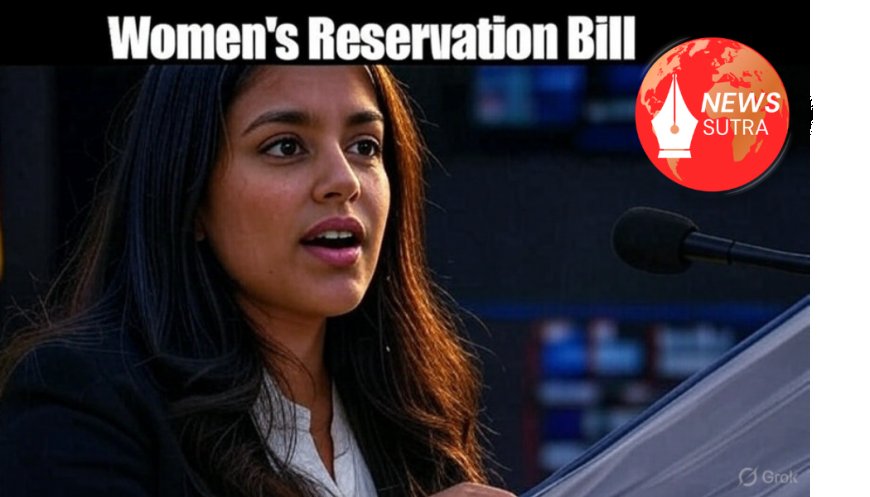Women’s Reservation Bill: Catalyst for Change or Clever Political Optics?
The Women’s Reservation Bill promises to empower women with 33% seats in legislatures—but is it transformative legislation or strategic political optics? A deep dive into its impact, history, and political timing.

A Historic Bill with a Complex Legacy
The Women’s Reservation Bill, formally known as the Constitution (One Hundred and Twenty-Eighth Amendment) Bill, 2023, has reignited a national debate on gender equality in politics. Touted as a historic move toward women’s political empowerment, the bill seeks to reserve 33% of seats for women in the Lok Sabha and state legislative assemblies. However, many are asking: Is this truly a game-changer—or just politically convenient optics before key elections?
Passed in the Lok Sabha on September 20, 2023, and later in the Rajya Sabha, the bill marked a rare moment of bipartisan support. But while it captured headlines and public admiration, critics have raised serious questions about its implementation timeline, exclusions, and the strategic timing of its rollout.
What the Bill Promises—And What It Doesn't
The Women’s Reservation Bill proposes to:
-
Reserve 33% of seats in the Lok Sabha and state assemblies for women.
-
Apply the reservation after the next census and subsequent delimitation exercise.
-
Reserve one-third of seats within the quota for SC/ST women.
While the intent is bold, the fine print introduces delay. Implementation hinges on the completion of the next national census and a fresh delimitation of constituencies, both of which could push the rollout to post-2029 elections—leaving many to wonder if this is genuine reform or symbolic positioning.
To explore the detailed text of the bill, visit the PRS Legislative Research summary.
Political Timing: Strategic or Sincere?
The bill’s introduction came just months before key state elections and ahead of the 2024 General Elections. Political analysts and opposition leaders have accused the ruling BJP of using the bill as a pre-election soft power strategy, designed to showcase commitment to women's empowerment without offering immediate benefits.
In a piece by The Hindu, senior political observers noted the absence of a firm timeline, calling it “a symbolic commitment dressed as legislative urgency.”
Moreover, the exclusion of OBC women from sub-quotas within the bill has sparked protests from multiple political fronts, demanding greater inclusion of socially backward women—a group already underrepresented in political discourse.
Historical Context: Decades in the Making
The demand for women’s reservation isn't new. The first Women’s Reservation Bill was introduced in 1996, and successive governments have tabled versions in 1998, 1999, and 2008—each eventually stalling amid political deadlock.
The current version is seen as the most complete legislative step, but even now, implementation is deferred. Political scientist Dr. Niraja Gopal Jayal writes in Scroll.in, “The devil lies in the delay. Celebration without implementation risks tokenism.”
Real Impact or Political Camouflage?
Here’s what the bill could change if implemented with urgency:
-
Elevate India’s ranking in global indices on women’s representation. As per Inter-Parliamentary Union data, India ranks low compared to nations like Rwanda, Mexico, and South Africa.
-
Ensure greater focus on health, education, and gender-sensitive governance—areas women legislators often prioritize.
-
Create leadership pipelines for women in rural and semi-urban areas through increased visibility.
But without immediate implementation, the bill risks becoming what critics call a “constitutional promise with no delivery date.”
What India’s Women Leaders Are Saying
Several women leaders across parties have voiced mixed responses:
-
Sonia Gandhi backed the bill but insisted it should include OBC reservation.
-
Smriti Irani, Union Minister, hailed it as “Narishakti Vandan Adhiniyam”, reinforcing the government's feminist narrative.
-
Mahua Moitra questioned the delayed timeline and called for an independent women's quota without waiting for delimitation.
Conclusion: The Need for Accountability and Action
While the Women’s Reservation Bill is a landmark move on paper, it runs the risk of becoming a symbolic gesture unless followed by transparent timelines, inclusive provisions, and real political will. For it to truly transform India’s political landscape, implementation must not be tied to census delays or electoral cycles.
India stands at a crossroads where legislative intent must meet political integrity. Until then, citizens, civil society, and media must continue to demand not just reservation, but representation with results.
For further analysis on how gender quotas shape governance, see this UN Women policy brief on political gender parity.














